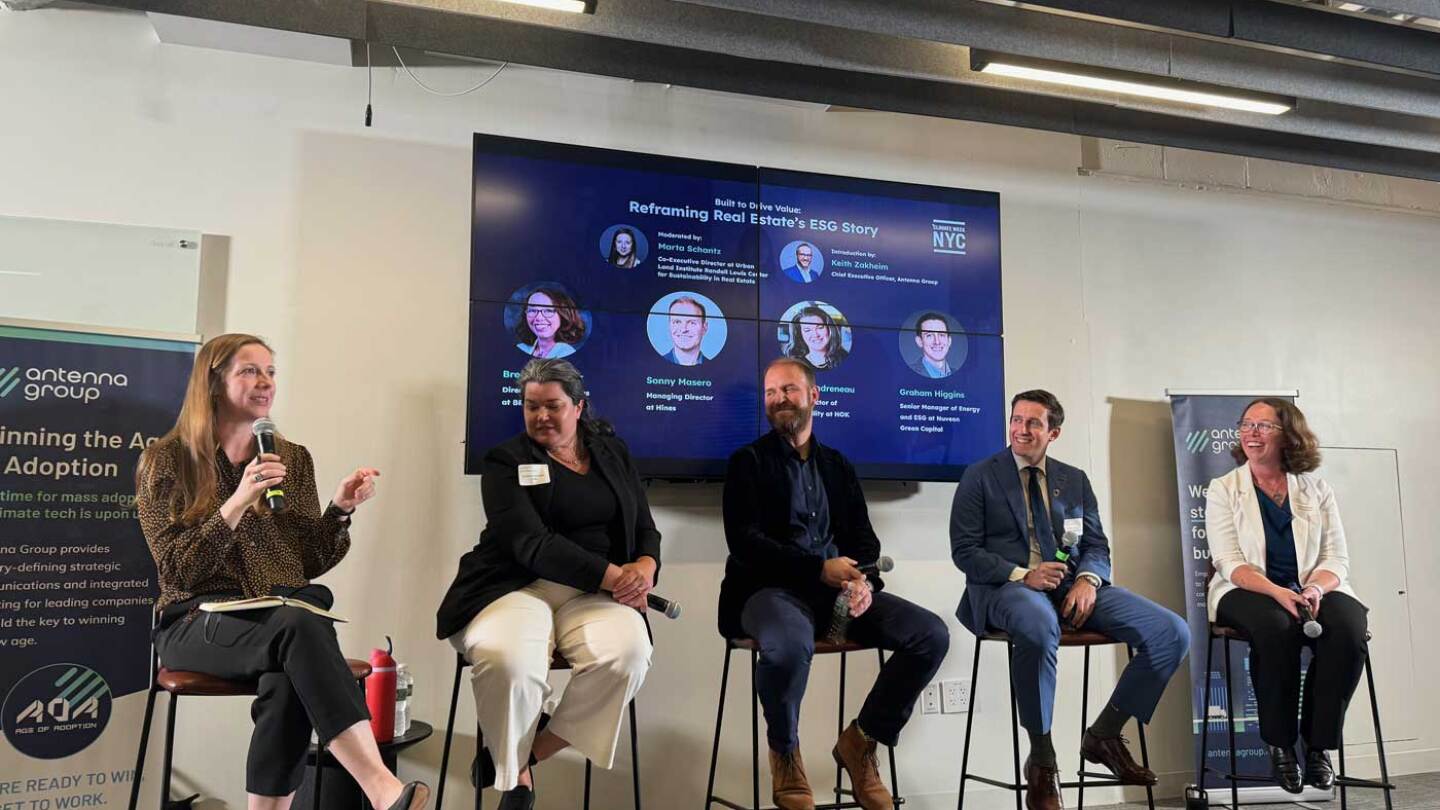T
he term "Environmental, Social, and Governance" (ESG) has been around for two decades, first coined by the United Nations Global Compact in 2004. However, its rise has led to increasing political backlash, with some states banning ESG in investment decisions. Despite this, ESG remains crucial in the real estate industry, and companies are eager to reframe it for investors or project partners who may be wary of the term.
A recent panel discussion during New York City Climate Week highlighted the need to rehabilitate perceptions of ESG. Panelists included Breana Wheeler, director of operations at BREEAM USA; Sonny Masero, managing director at Hines; Anica Landreneau, global director of sustainability at HOK; Graham Higgins, senior manager of energy and ESG at Nuveen Green Capital; and moderator Marta Schantz.
The pushback against ESG has led some companies to avoid being accused of "greenwashing" by removing ESG information from their websites or keeping quiet about sustainability goals. This phenomenon is now dubbed "greenhushing." However, Higgins' company, Nuveen Green, is not seeing a pullback in interest and instead experiencing more demand from investors and occupiers.
For real estate professionals looking to partner with investors on sustainable developments, confronting the ESG issue head-on is becoming necessary. Masero cited an executive at a major investment manager who said, "We don't care what you care about ESG, but you have to let us care about ESG if you want to make money." Panelists agreed that despite the current negative connotation towards ESG, investors still see it as a top priority.
Many in the real estate industry are making the business case for ESG to rework the narrative around the framework and bring clients on board for sustainably-minded projects. However, with over 60 anti-ESG bills introduced at the state level, this can be a tough sell. Panelists emphasized the importance of using the right language depending on the context.
Texas, a state that has taken a tough stance on ESG, is surprisingly a large investor in clean energy. According to Masero, "Texas is the largest investor of renewable energy in the country. That's not because they want to save the world, it's because it makes money." Similarly, Florida, another state with anti-ESG legislation, still invests close to $13 billion.
Despite the anti-ESG rhetoric and evolving definitions around the concept, there is still upward momentum and an increase in companies looking to achieve green certifications. As Wheeler said, "The language is shifting, it's not changing. It was CSR, now it's ESG, and it will be something else in ten years. But everybody's pointing in the same direction now."















